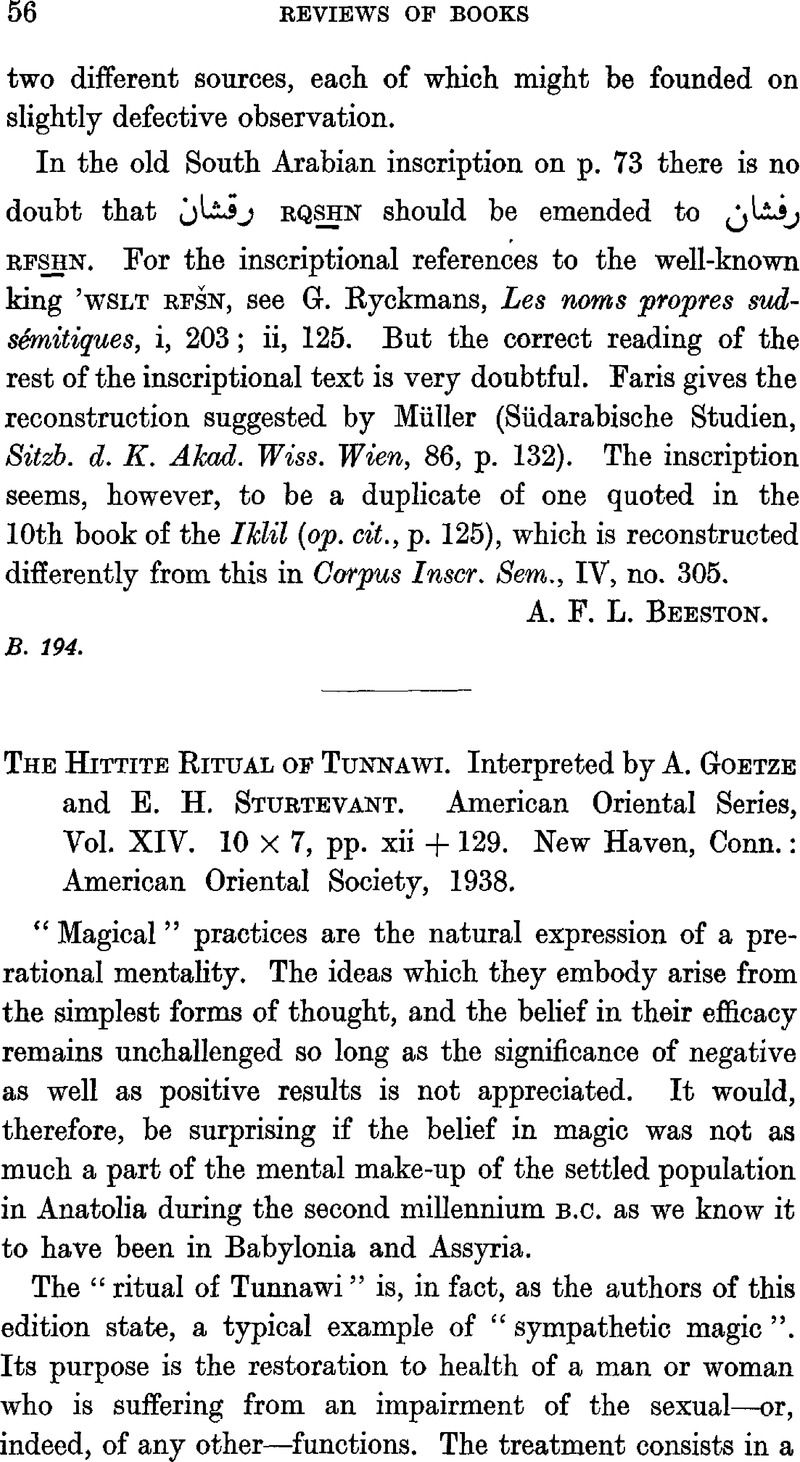No CrossRef data available.
Article contents
The Hittite Ritual of Tunnawi. Interpreted by A. Goetze and E. H. Sturtevant. American Oriental Series, Vol. XIV. 10 × 7, pp. xii + 129. New Haven, Conn.: American Oriental Society, 1938.
Published online by Cambridge University Press: 15 March 2011
Abstract

- Type
- Reviews of Books
- Information
- Copyright
- Copyright © The Royal Asiatic Society 1941
References
page 57 note 1 TIYADU (a plant, probably asafoetida) with the verb tiyanešk- (§ 14), and GIŠšarra with the verb šarrešk- (§ 25). Götze is surely right in suggesting this interpretation of these two paragraphs; but if so, no conclusion can be drawn from the context as to the nature of the objects in question, and the meaning “brush” for GIŠšarra- is entirely problematical.
page 58 note 1 See Götze, , Kleinasien, p. 142Google Scholar.
page 59 note 1 What exactly the sorcerer is thought to have done is not entirely clear from § 18. But KUB XVII 28, ii 33 ff. throws some light ori this point: “If against a man his friend lifts his tongue, or addresses the, gods (about) him”; and ibid. 40: “Whosoever has lifted his tongue [against me ?] before the gods, whosoever has addressed the gods behind my back…”
page 59 note 2 But is not uzuÚR-t = “sexual part”. another word?
page 60 note 1 Die Hethitisch-akkadische Bilingue, pp. 87 ff.
page 60 note 2 In KUB. XXIV 3 i 54–5: KÁ-uš zi-ik-pít … [sa]r-ri-i “thou passeat through the gate (of heaven),” the word gate is actually substituted for threshold in this phrase. See LAAA. xxvii, pp. 24–5 and 83.


